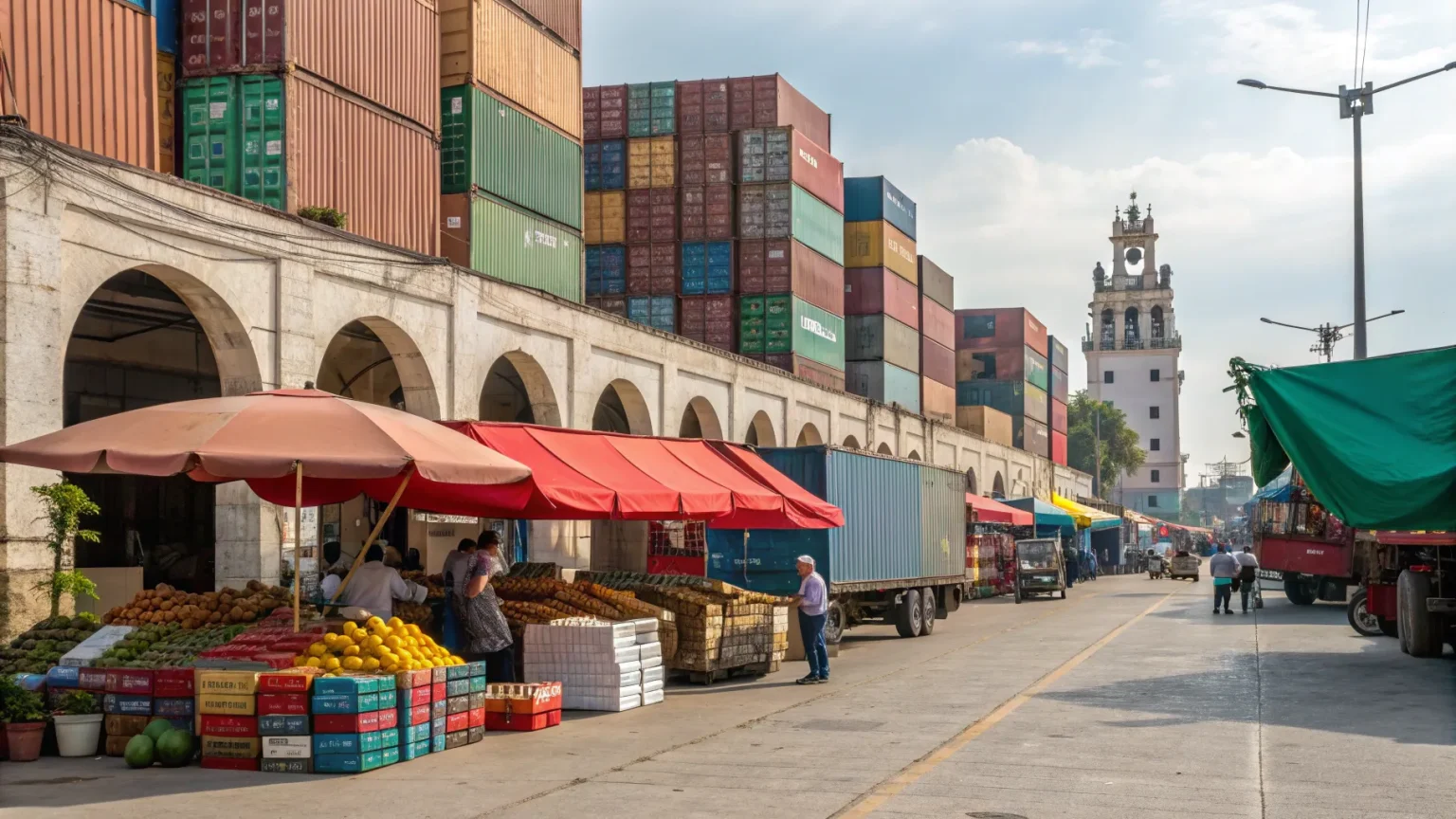Mexican exports to the United States have plummeted by 50 percent following the implementation of steep tariffs, forcing businesses and government officials to search for alternative markets and solutions from unexpected sources.
The dramatic drop in cross-border trade has created an economic crisis for Mexico, which has historically relied on the US as its primary export destination. The 50 percent tariffs, unprecedented in recent US-Mexico trade relations, have effectively priced many Mexican goods out of the American market.
Mexican manufacturers across sectors including automotive, agriculture, textiles, and electronics are reporting significant revenue losses and production cutbacks. Many companies have been forced to lay off workers or reduce hours as orders from US customers dry up.
Seeking New Markets
Mexican business leaders are rapidly pivoting toward other international markets to compensate for lost US sales. Trade delegations have been dispatched to Europe, Asia, and South America in search of new export opportunities.
“We have no choice but to find new customers,” said a representative from Mexico’s export council. “The US market was our backbone for decades, but these tariffs have made it impossible to compete there.”
The government has established emergency trade promotion offices in several countries and is offering financial incentives for businesses that successfully develop new export channels. Special focus has been placed on strengthening trade relationships with Canada, China, and the European Union.
Domestic Policy Response
Mexican policymakers have implemented several emergency measures to support affected industries:
- Tax relief programs for companies with significant export losses
- Subsidized loans to help businesses retool for new markets
- Workforce retention grants to prevent mass layoffs
- Expedited trade agreements with non-US partners
The central bank has also adjusted monetary policy to stabilize the peso, which initially fell sharply when the tariffs were announced. Economic analysts predict the Mexican GDP could contract by 2-3 percent this year if alternative markets cannot be developed quickly.
Unexpected Alliances
In a surprising development, Mexican officials have reached out to other countries facing similar US trade restrictions to form strategic partnerships. These unconventional alliances aim to create alternative supply chains and trade networks that bypass the US market entirely.
“We’re finding common ground with nations we previously had limited relations with,” a senior trade official explained. “This crisis has forced us to think creatively about who our economic partners should be.”
Mexican businesses are also exploring domestic market opportunities. Some manufacturers have redirected production to serve local consumers, while others have formed consortiums to develop new industries less dependent on US trade.
Agricultural producers have been particularly hard hit, as perishable goods cannot easily be redirected to distant markets. The government has increased purchases of domestic farm products for school meal programs and food assistance initiatives to help absorb excess production.
The long-term impact remains uncertain, but many analysts believe the trade disruption will permanently alter Mexico’s economic structure. Companies that survive will likely emerge more diversified and less vulnerable to US policy shifts.
As negotiations continue between the two countries, Mexican businesses are proceeding with the assumption that high tariffs may remain in place for an extended period, necessitating fundamental changes to their export strategies and business models.







